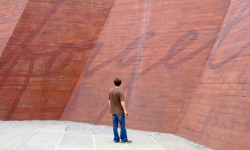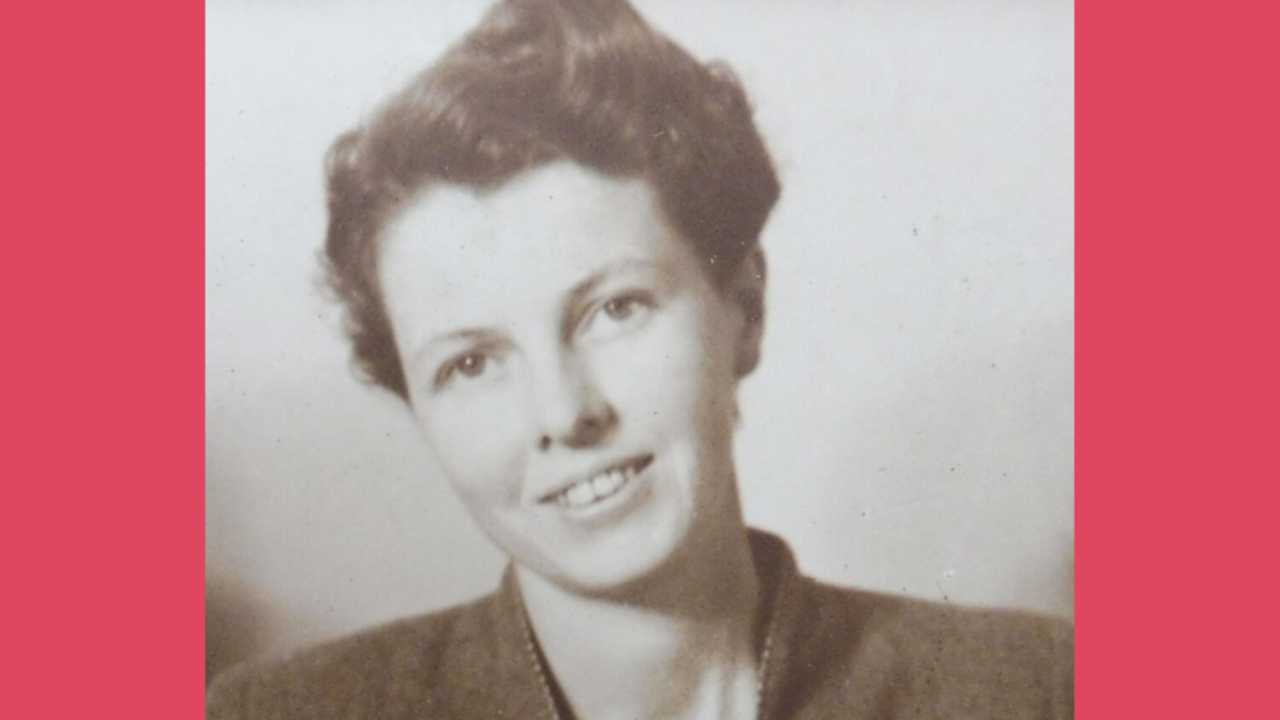
Anne Brown and her husband Royston served as missionaries in India in what became East Pakistan, later Bangladesh. After serving there before, during and after World War II, Anne fashioned her contribution alongside Royston’s charge positions at two churches in New Zealand and later at two borstals.
Early Life
Anne Brown was a ‘missionary kid’, speaking Portuguese as her first language: her father, Alexander Reese, was a Presbyterian missionary in Brazil with a parish as large as the South Island of New Zealand. Even when, aged 12, Anne came to New Zealand, she thought mainly in Portuguese. Her mother was ill but her father remained in Brazil because there as nobody to replace him. This was a model to Anne of what it was to be committed to Christian work.
Anne stayed with her with her mother and grandmother in Epsom, Auckland, both for school and tertiary training as a kindergarten teacher. While in Epsom she met Royston Brown who was training for missionary service; they developed an interest in each other. The mission society thought her too young to leave for the mission field, so when Royston left for India in 1936, Anne took further training as a Karitane nurse, then left for India two years later. She and Royston were married in Darjeeling, NE India, on 1 June, 1939.
Bangladesh
Anne and Royston worked in what is now Bangladesh, living at Brahmanbaria and then Chandpur. Anne set about making Christian and non-Christian friends, both expatriate and Bengali. The other expatriate families at the river port of Chandpur, many of whom were merchants in the jute trade, rarely mixed with Bengalis. But in a conscious decision, Anne organised dinner parties with a deliberate mix of Indian and English families, meeting as equals.
Her commitment to be one among many in the local church took her far beyond society’s norms. When the wife of the Bengali pastor died, a woman Anne loved as her sister in Christ, Anne breastfed the young Bengali baby for the next few months.
It was a difficult time in India. In famine people suffered sorely, some dying for want of food. Anne did what she could. As a young wife and mother, and as a Christian, these years left a mark on all she subsequently did.
World War II
During World War 2 when Royston joined up and was commissioned in the Indian Army, they both left the mission station, but separation was inevitable. Anne cared for three children, travelling when possible to be near Royston. Often on Indian trains they went Intermediate Class (between second and third class, which was very elementary) with Anne cooking food on a kerosene primus on the train. People observed that when chaotic things were happening around Anne kept her sense of fun and her dignity.
Early in the war Anne went to Kolkata while Royston was in camp outside the city. When a young British missionary died leaving toddler twins, Anne minded and mothered them for the 18 months—until the father married again.
When they were moved to Madras (now Chennai), as part of Royston’s military service, Anne took on the job of running a hostel for women medical students from Vellore Christian Hospital, who were in the city for experience in gynaecology and obstetrics. In addition, she and Royston tried to serve young English officers by getting them acclimatised to Indian life. As part of that, Anne hosted dozens of army officers at their home. Some were stiff Englishmen with a colonial mentality, so, with charm and graciousness, Anne deliberately introduced them to the joys of Indian food and culture.
Post-war & partition
When war was over, Royston was seconded to the Civil Government in Assam to assist with post-war rehabilitation. This became a precious twelve months in Shillong at altitude round 1500 metres in ‘the Scotland of the East’ where the family was together again – even though Anne was often very unwell with dysentery and thyroid troubles. During this time Royston carried responsibilities that Anne could help with such as typing minutes and maintaining contacts.
India’s partitioning in 1947 brought wide-spread turmoil, as people were forcibly relocated, millions fled across borders and thousands died. There was further turmoil when Gandhi was assassinated. During this time, people said Anne’s actions ‘were characterised by a wonderful poise that conveyed to others a sense of peace.’[1]
[1] She Made You Feel Good, Stan Edgar, NZB 1950
New Zealand – pastor’s wife
After a furlough in New Zealand, their second period of missionary work was two years in Bengal (now called East Pakistan). This was for an unexpectedly short time, because Anne’s ill-health (recurring amoebic dysentery) was life-threatening. For the rest of her life Anne was rather thin and frail – a contrast with her remarkable energy – but she remained healthy away from the tropical heat and exposure to gastric bugs.
Back in New Zealand, Royston became minister of Murray’s Bay Baptist church at its inception, and then became minister at Wellington Central. Anne’s organising skills, assistance in the pastoral work, and hospitality made being a minister’s wife a vocation. In addition, quite apart from the church organisation, Anne found and helped solo mothers struggling to survive – at a time before the domestic purposes benefit.
At that time, Anne’s work, and that of other married women, was often subsumed under support for a husband’s work. But Anne believed she had a distinct calling to be in church work: separate to, but alongside the work of her husband. When a church called Royston to be a minister, both he and Anne saw it as a combined call and a joint decision. In conversation: Anne would say, ‘I strongly believe that God has no favourites. If God has a call for one member of a family unit, it will also be right for each member of the family unit.’
In Wellington for three years Anne was pastoral assistant (without the title in those days), ministering among the large number of students and people away from home or on work transfers, etc. Here she was more totally focussed in the church ministry and church contacts than at most other times in her life. However, she was also involved in her sons’ school, and became the district president of BWMU (Baptist Women’s Missionary Union). For the latter, she travelled to churches and gatherings around the district, spending many hours on trams, buses and trains.
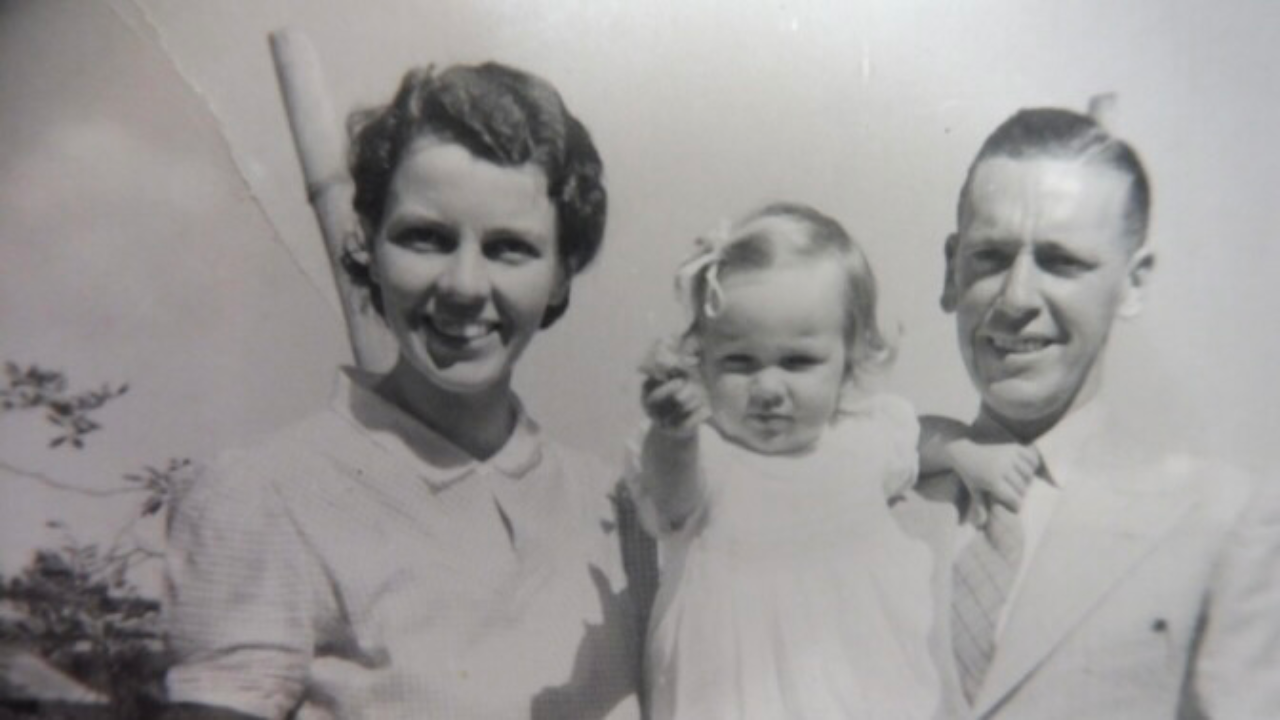
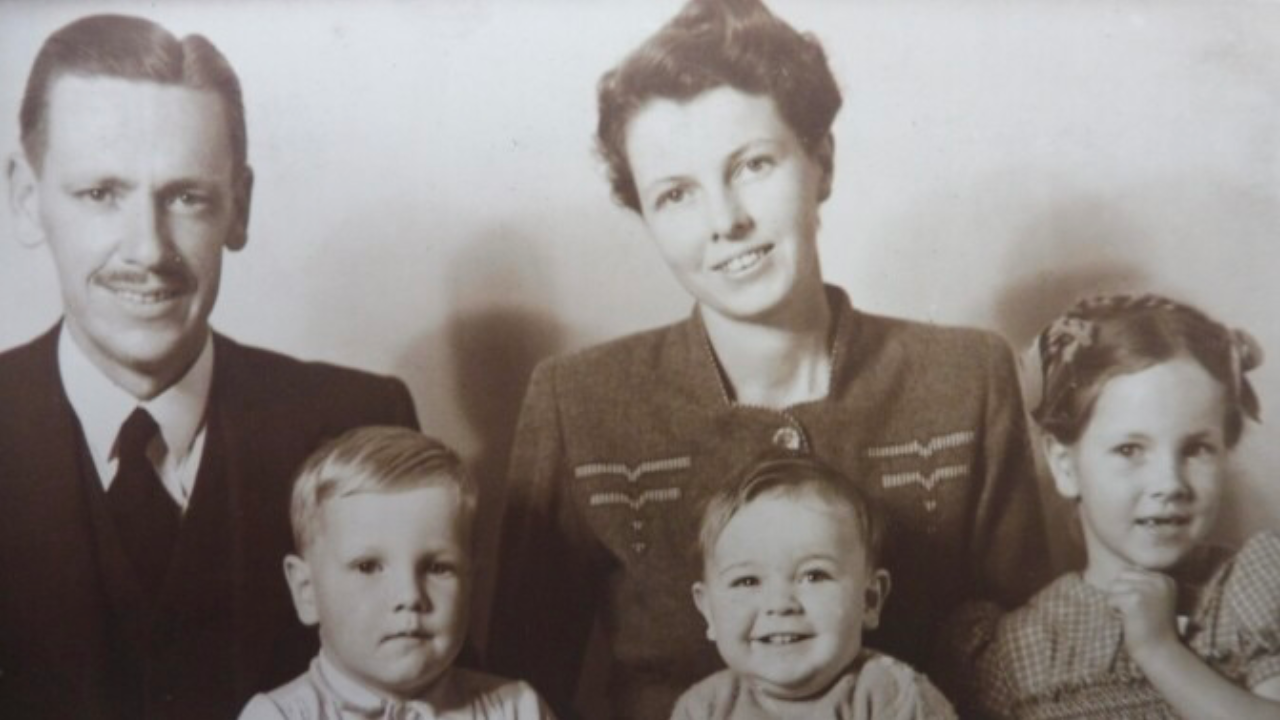
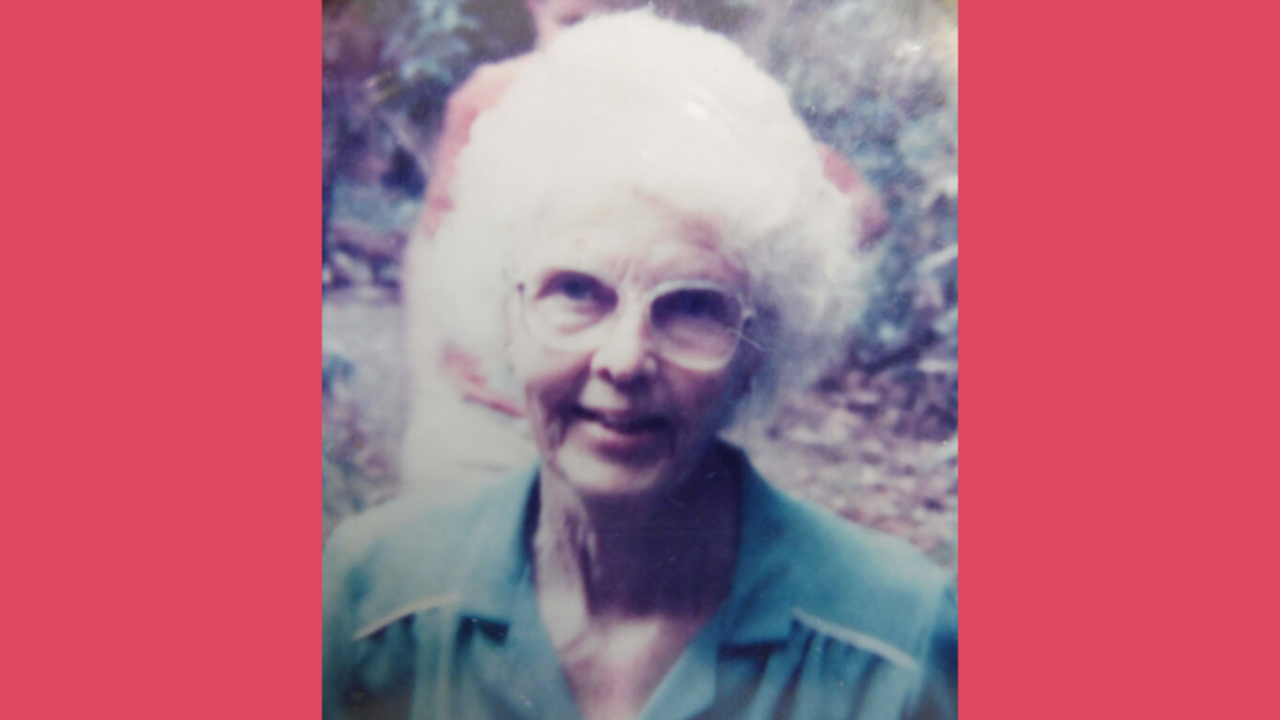
Ministering in and outside the church
When Royston made a big change in career direction, accepting the position of superintendent of the Invercargill Borstal, Anne had a new environment in which to bring kindness and concern. Anne got to know the wives of the other officers, offered friendship, and saw the borstal boys as people, in spite of their misdemeanours. Work parties of delinquent boys might drink morning tea from Anne’s best china. One inmate wrote, ‘She is quite a toff—but she makes you feel good!’
At the same time Anne ministered at what was Esk Street Baptist, now Invercargill Central Baptist, through hospitality, leading small groups, relating to the other churches, and speaking to groups like Crippled Children’s Society and the girls’ high school. Within a year Anne was president of the Southland branch of the BWMU, travelling by bus or train to overcome the isolation of groups of women who rarely felt in touch with the rest of the Baptist movement.
It was Southland’s turn to put forward their nominee for National President of BWMU. They chose Anne, and in that position she was soon away from home up to six weeks at a time visiting the women’s groups. She joined the NZBMS national Mission Council in 1960, and became the first woman to preach the Missionary Sermon at Baptist Assembly.
Anne had a special style about her. For her obituary, Stan Edgar wrote years later,
She was not robust in health, but had great inner strength. Anne’s upright bearing made others feel they slouched around. She was always determined to be herself, perhaps deliberately different from others. She expressed her convictions strongly but always with dignity and charm. She was always a most interesting person with an influence that extended across the boundaries of race and social class. She was always interested in others, and her home was a haven to which they could come.
When Royston was transferred to the Waikeria Youth Centre near Te Awamutu, Anne established a new custom by entertaining Parole Board members to a home-cooked midday meal. The top security prison was more stressful. Anne joined in the local community where she could, and when there was nobody to run the Kihikihi kindergarten used by prison staff families, Anne returned to her earliest training roots and became for a while the head teacher.
By now Anne was also much engaged in the Baptist Women’s League, the forerunner of much Baptist social work. Under BWL ‘op shops’ opened, meals were provided, social work initiatives began in many churches, and the City Mission started in Auckland. It was the precursor to a lot of the social work now run by trusts around New Zealand. Women streamed to the conferences. She joined in on bottling fruit for Baptist College, rallies and retreats for women up and down the country, submissions to parliamentary select committees, research for the Baptist Public Questions Committee, and membership in the National Council of Women.
Anne turned her thoughts overseas too and helped set up the Baptist Women’s Union of the South West Pacific with its assistance to Pacific Islands and its five-yearly gatherings. Anne led the hosting of the first BWUSWP conference in Auckland, leading in the growing perception of Pacific women’s groups on equal terms, not only as recipients but also as mutually givers and receivers of the strengths and blessings of the gospel. Hundreds came from the Pacific to that 1970s conference.
Retirement
After retirement, Royston and Anne lived for a while in the Waitakeres, attending Avondale Baptist church, where Anne’s contribution was much appreciated. Later they lived in Hamilton, and she worked and worshipped in the Hamilton South church. Anne died on June 2, 1990 in Hamilton.
The writer of her obituary commented concerning the couple at one stage in their partnership, ‘The demands on both Royston and Anne were greater, but again she was supportive. She added her own mark to life there.’[1] That was Anne Brown—a model wife of her day, but always her own person with her own leadership initiatives.
Sources:
NZ Baptist, July 1990, Obituary, Rev Stan Edgar
Personal conversation with Anne’s daughter, Olwyn Dickson, 31.8.2021 and 1.9.2021
[1] She Made You Feel Good, Stan Edgar, NZB 1950
